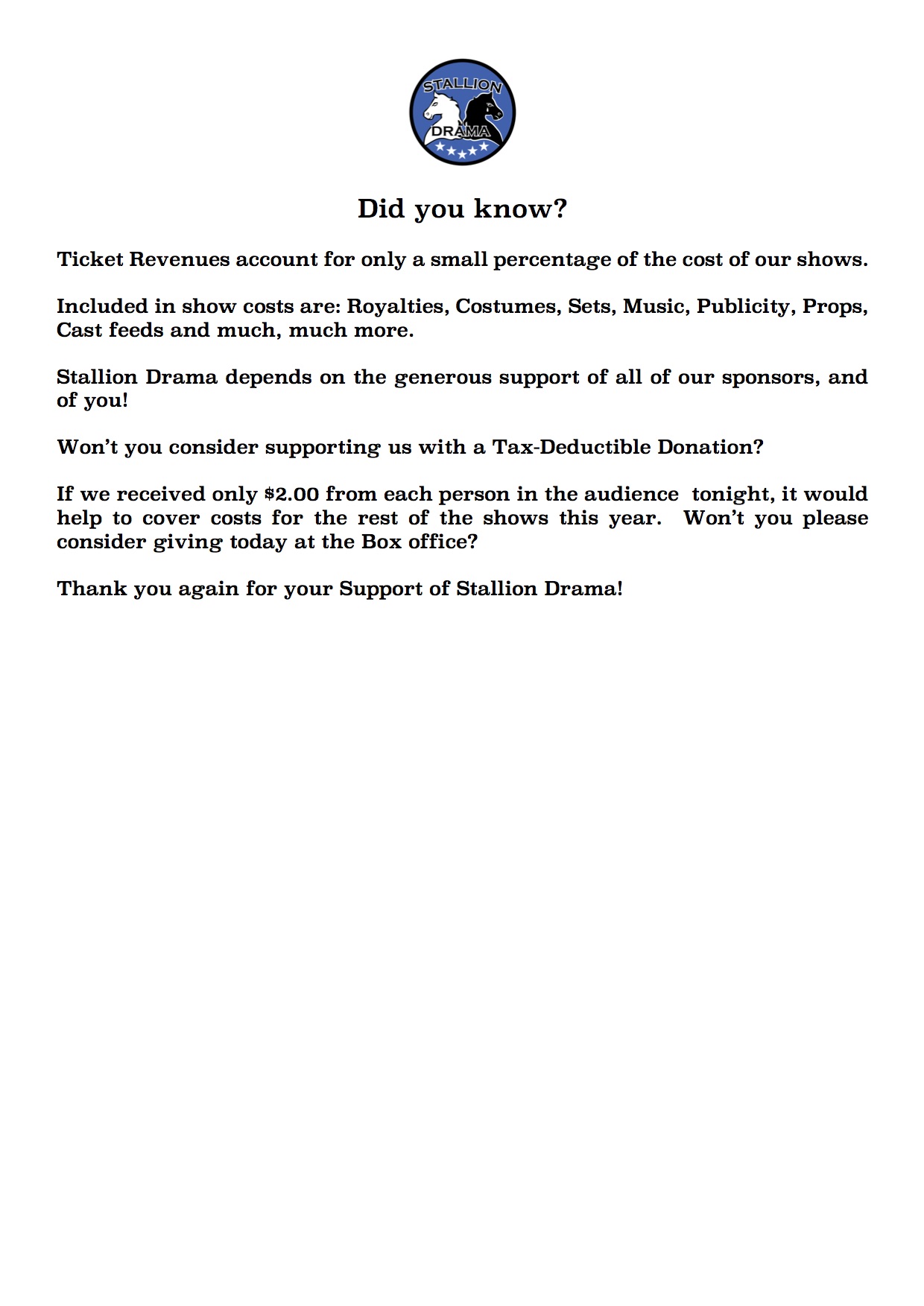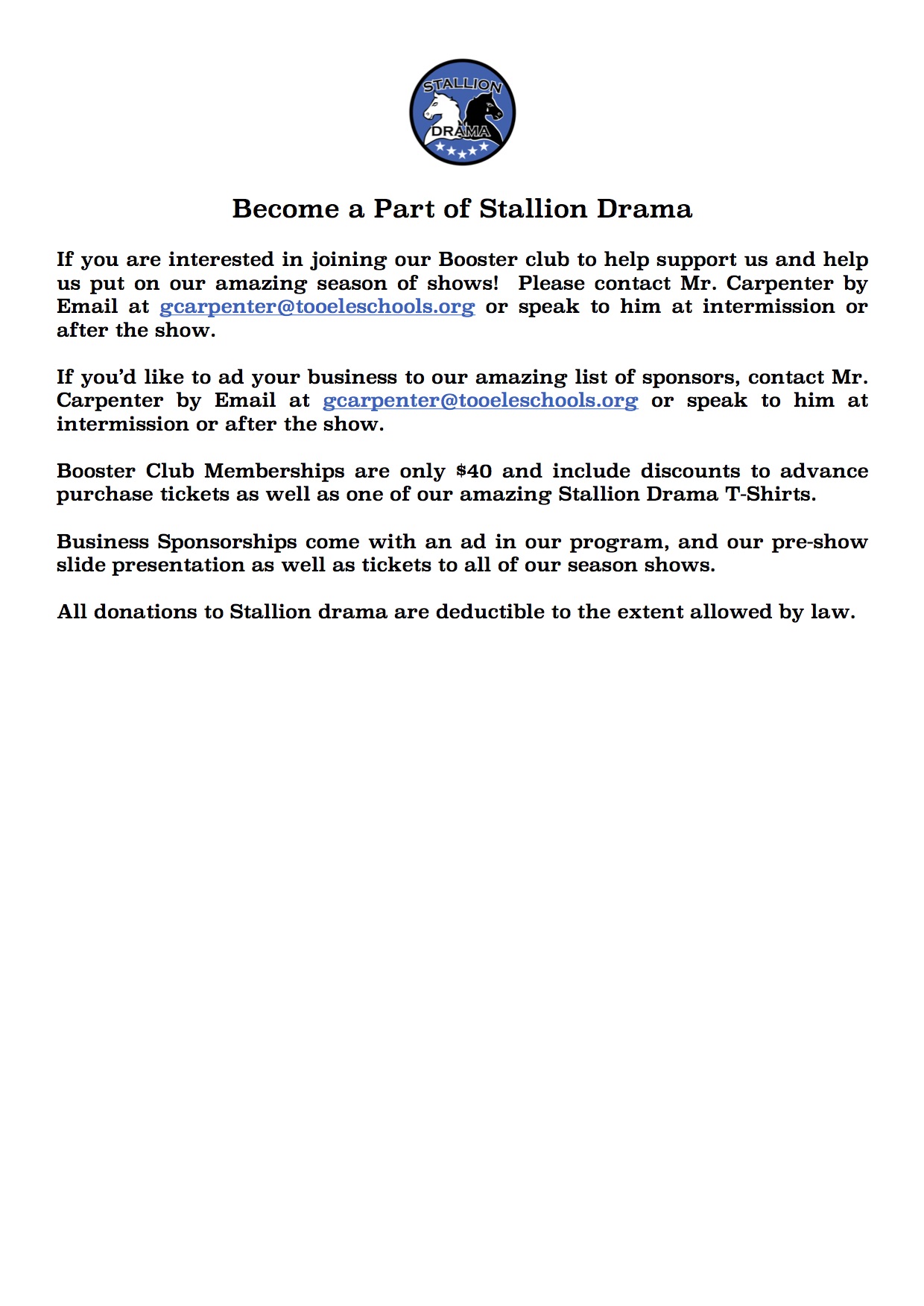

Hamlet |
||
|
|
||
|
|
William Shakespeare |
|
|
|
||
|
Sophie Mackay Raine Eldredge |
Daniel O'Dell Dylan Slaugh |
Connor Welch |
Follow Us:
Cast
Creative Team
Glen Carpenter
McKenzie Izatt
Haley Welch
Randon Atkins
Liberty Bishop
Yonmi Saavedra
Hannah Anthony
Dan Becerra
Kensington Hohmann
Jeffrey Hays
Utah Shakespeare Festival
Meet the Company
Sophie Mackay
 Sophie has been with Stallion Drama for four year as an actor, dance captain, choreographer, and as drama club Vice President. Hamlet marks her first lead role and she is excited to share this (in)famous character with you.
Sophie has been with Stallion Drama for four year as an actor, dance captain, choreographer, and as drama club Vice President. Hamlet marks her first lead role and she is excited to share this (in)famous character with you.
Robinn Bailey
 Robinn Bailey is so excited to play Hamlet, they have spent hours working on this show throwing themselves into the part. Robinn is a senior and president of Stallion Drama, they also run lights for most of the shows. Robinn will be pursuing the tech side of theater in college attending USUE.
Robinn Bailey is so excited to play Hamlet, they have spent hours working on this show throwing themselves into the part. Robinn is a senior and president of Stallion Drama, they also run lights for most of the shows. Robinn will be pursuing the tech side of theater in college attending USUE.
Jamie Raine Eldredge
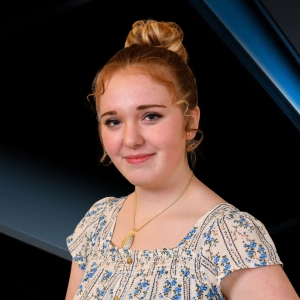 Jamie Raine Eldredge has been doing theater since the 5th grade. Some of her favorite roles include Tom Snout in Tooele Valley Theaters production of Midsummer Night Dream, Patty in Tooele Valley Theater's production of You're a Good Man Charlie Brown, and Jan in Stansbury High School's production of The Bardy Bunch. Outside of theater she enjoys reading, writing, and waiting for the next audition. As a senior she is excited to see what the future holds with her acting career.
Jamie Raine Eldredge has been doing theater since the 5th grade. Some of her favorite roles include Tom Snout in Tooele Valley Theaters production of Midsummer Night Dream, Patty in Tooele Valley Theater's production of You're a Good Man Charlie Brown, and Jan in Stansbury High School's production of The Bardy Bunch. Outside of theater she enjoys reading, writing, and waiting for the next audition. As a senior she is excited to see what the future holds with her acting career.
Julianne Ferguson
 This is Julianne’s second Shakespeare show. First one being a Midsummer Nights Dream at Tooele Valley Theatre where she played Puck. This is her third play this school year! The other two being a Christmas story at Stansbury high and Little women with Tooele Valley Theater.
This is Julianne’s second Shakespeare show. First one being a Midsummer Nights Dream at Tooele Valley Theatre where she played Puck. This is her third play this school year! The other two being a Christmas story at Stansbury high and Little women with Tooele Valley Theater.
Dylan Slaugh
 Dylan Slaugh is a senior abs has been in numerous shows. He has played ensemble roles in both Matilda and Clue, and he has also played Jean Shepherd in A Christmas Christmas Story. He is on the drama competition team of drama and last year won a superiors medal for his humerus monologue. He looks forward to his next productions of High School Musical and Sponge Bob the Musical, and competing against this year.
Dylan Slaugh is a senior abs has been in numerous shows. He has played ensemble roles in both Matilda and Clue, and he has also played Jean Shepherd in A Christmas Christmas Story. He is on the drama competition team of drama and last year won a superiors medal for his humerus monologue. He looks forward to his next productions of High School Musical and Sponge Bob the Musical, and competing against this year.
Danny Odell
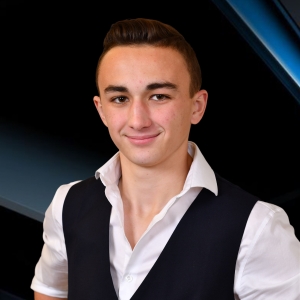 Danny Odell, a junior at Stansbury High School, is indeed playing the role of Laertes, but is that all there is to him? He, in fact, plays soccer as well as participates in theater. Along with that, he considers himself to be a "professional binge-watcher" when it comes to The Office, this dude is obsessed with that show. He has seen The Office just over twenty times all the way through and was absolutely heartbroken when it was removed from Netflix and moved to Peacock. That is just about everything y'all need to know about Danny Odell.
Danny Odell, a junior at Stansbury High School, is indeed playing the role of Laertes, but is that all there is to him? He, in fact, plays soccer as well as participates in theater. Along with that, he considers himself to be a "professional binge-watcher" when it comes to The Office, this dude is obsessed with that show. He has seen The Office just over twenty times all the way through and was absolutely heartbroken when it was removed from Netflix and moved to Peacock. That is just about everything y'all need to know about Danny Odell.
Connor Welch
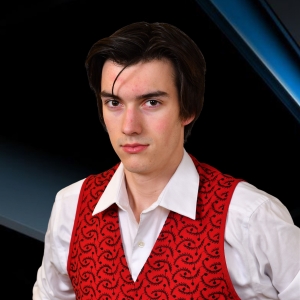 Connor is a senior and has performed numerous times here at Stansbury High School including Jesse Tuck in Tuck Everlasting and Mr. Wormwood in Matilda. He was recently in A Christmas Carol at Hale Centre Theatre in Sandy. He is excited to tell the story of Hamlet.
Connor is a senior and has performed numerous times here at Stansbury High School including Jesse Tuck in Tuck Everlasting and Mr. Wormwood in Matilda. He was recently in A Christmas Carol at Hale Centre Theatre in Sandy. He is excited to tell the story of Hamlet.
Conner Webb
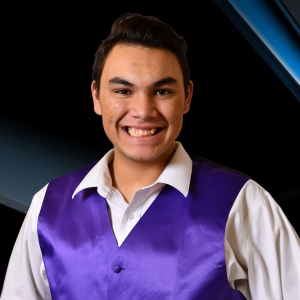 Conner is a Senior this year and is very excited to do his first Shakespeare show! Some roles to mention: The Old Man (A Christmas Story), Mr. Boddy (Clue), Finch (Newsies), and etc. He is also excited to soon be playing Patrick Star in Spongebob here at SHS. He hopes you like the show!
Conner is a Senior this year and is very excited to do his first Shakespeare show! Some roles to mention: The Old Man (A Christmas Story), Mr. Boddy (Clue), Finch (Newsies), and etc. He is also excited to soon be playing Patrick Star in Spongebob here at SHS. He hopes you like the show!
Mikayla Adams
 Mikayla Adams is a senior and is super excited to present this Shakespeare tragedy to you all. You might have seen her last in Matilda or as Mrs White in Clue. Upcoming you can see her as Mrs Darbis in High School Musical and as Sandy Cheeks in SpongeBob! I hope you enjoy the show!
Mikayla Adams is a senior and is super excited to present this Shakespeare tragedy to you all. You might have seen her last in Matilda or as Mrs White in Clue. Upcoming you can see her as Mrs Darbis in High School Musical and as Sandy Cheeks in SpongeBob! I hope you enjoy the show!
Boston Bean
 Boston is so exited to be on stage with Hamlet! This is her first straight play with Stallion Drama, though previously she has been in a Christmas Story and Matilda at Stansbury High. Most recently she portrayed Amy March in Little Women at Tooele Valley Theatre, and she has loved performing so often this year.
Boston is so exited to be on stage with Hamlet! This is her first straight play with Stallion Drama, though previously she has been in a Christmas Story and Matilda at Stansbury High. Most recently she portrayed Amy March in Little Women at Tooele Valley Theatre, and she has loved performing so often this year.
Kenzie Izatt
 Kenzie has been performing with Stallion Drama since age 11. She is a senior this year, and is the secretary of drama club. Her favorite roles include Mrs. Peacock, Shirley Partridge, the Queen of Hearts, and Mother Parker. She is excited to perform as Polonius and hopes you enjoy the show.
Kenzie has been performing with Stallion Drama since age 11. She is a senior this year, and is the secretary of drama club. Her favorite roles include Mrs. Peacock, Shirley Partridge, the Queen of Hearts, and Mother Parker. She is excited to perform as Polonius and hopes you enjoy the show.
Preston Nelson
 Preston Nelson is excited to perform for you as Horatio tonight. Preston has been in the Stallion Drama program since his freshman year. He is now a Junior and has been seen as Bobby Brady (The Bardy Bunch) and Scut Farkus (A Christmas Story). Next time, you will see him as Ryan Evans (High School Musical: On Stage).
Preston Nelson is excited to perform for you as Horatio tonight. Preston has been in the Stallion Drama program since his freshman year. He is now a Junior and has been seen as Bobby Brady (The Bardy Bunch) and Scut Farkus (A Christmas Story). Next time, you will see him as Ryan Evans (High School Musical: On Stage).
Sydney Blanchard
 Tonight you will be seeing more of Sydney than ever before, she's excited to send herself into an identity crisis juggling all of her characters for you. Thank you for spending your evening with us and we hope you enjoy the show!
Tonight you will be seeing more of Sydney than ever before, she's excited to send herself into an identity crisis juggling all of her characters for you. Thank you for spending your evening with us and we hope you enjoy the show!
Eve Selway
 My name is Eve Selway. I am Bernardo the Terrified, a guard who thinks he's hallucinating. I'm also Reynaldo the Creepy Babysitter who has been spying and testing Laertes socially throughout his life, and Polonius' servant. I appear briefly as a random lord telling the king that the palace is being taken over.
Then, I appear as Osric who looks really shifty and prepares all of the poisons. If you look closely, he's satisfied with his success in taking down the entire royal family.
In my spare time, I try to convince Mr Carpenter to incorporate blood in Hamlet. I read and write fiction, fantasy and scary stories.
I also bake.
My name is Eve Selway. I am Bernardo the Terrified, a guard who thinks he's hallucinating. I'm also Reynaldo the Creepy Babysitter who has been spying and testing Laertes socially throughout his life, and Polonius' servant. I appear briefly as a random lord telling the king that the palace is being taken over.
Then, I appear as Osric who looks really shifty and prepares all of the poisons. If you look closely, he's satisfied with his success in taking down the entire royal family.
In my spare time, I try to convince Mr Carpenter to incorporate blood in Hamlet. I read and write fiction, fantasy and scary stories.
I also bake.
Haley Welch
 This is Haley Welch. She is a junior at Stansbury High School this year and has been a part of Stallion Drama since 6th grade. Outside of drama, she does figure skating and choir.
This is Haley Welch. She is a junior at Stansbury High School this year and has been a part of Stallion Drama since 6th grade. Outside of drama, she does figure skating and choir.
Eli Drorbaugh
 Eli has been involved in the Stallion Drama program for 6 years now. He loves supporting the department and the wonderful people in it. His favorite roles include Santa Claus (Christmas Story the Musical), Jiminy Cricket (Ever After), Pumba (Lion King Jr.), and Guy #2 (Emma, a Pop Musical).
Eli has been involved in the Stallion Drama program for 6 years now. He loves supporting the department and the wonderful people in it. His favorite roles include Santa Claus (Christmas Story the Musical), Jiminy Cricket (Ever After), Pumba (Lion King Jr.), and Guy #2 (Emma, a Pop Musical).
Taylor Gable
 Taylor Gable is excited for her first Shakespeare performance as Guildenstern. Taylor is a junior, and this is her 5th show with Stallion Drama. She was ensemble in Mamma Mia, Newsies, and Matilda. And played Ms.Sheilds in A Christmas Story earlier this season. Later this year she will be the Mayor in SpongeBob.
Taylor Gable is excited for her first Shakespeare performance as Guildenstern. Taylor is a junior, and this is her 5th show with Stallion Drama. She was ensemble in Mamma Mia, Newsies, and Matilda. And played Ms.Sheilds in A Christmas Story earlier this season. Later this year she will be the Mayor in SpongeBob.
Hannah Heyrend
 Hannah has worked backstage for many shows such as Newsies, Mamma Mia, and Christmas Story and is excited to be acting onstage for Hamlet!
Hannah has worked backstage for many shows such as Newsies, Mamma Mia, and Christmas Story and is excited to be acting onstage for Hamlet!
Glen Carpenter
 Glen has appeared at The Empress Theatre, The Grand Theatre, Hale Centre Theatre (both Orem and West Valley), The Egyptian Theatre, Wasatch Theatre Company and Rodgers Memorial (before they became Centrepoint), along the Wasatch front and The Benson Gristmill Performing Arts Foundation, and Laforge Encore Theatre out in Tooele. Before moving to Utah he was on the Executive Board and very active at the Bellingham Theatre Guild in Bellingham WA. Some of his favorite roles are Smee in Peter and the Starcatcher and Peter Pan, The Man in Chair in the Drowsy Chaperone, Hannibal in the Curious Savage, and Cogsworth in Beauty and the Beast. Glen is the Drama Director, Debate Coach and Performing Arts Chair at Stansbury High School and thinks his students are some of the most amazing and talented kids in the world! He believes that you should always pursue your dreams and do what you love, that’s why he went from being an accountant to a Drama Teacher. I’m so happy with this amazing cast, and I hope you’ll enjoy our production!
Glen has appeared at The Empress Theatre, The Grand Theatre, Hale Centre Theatre (both Orem and West Valley), The Egyptian Theatre, Wasatch Theatre Company and Rodgers Memorial (before they became Centrepoint), along the Wasatch front and The Benson Gristmill Performing Arts Foundation, and Laforge Encore Theatre out in Tooele. Before moving to Utah he was on the Executive Board and very active at the Bellingham Theatre Guild in Bellingham WA. Some of his favorite roles are Smee in Peter and the Starcatcher and Peter Pan, The Man in Chair in the Drowsy Chaperone, Hannibal in the Curious Savage, and Cogsworth in Beauty and the Beast. Glen is the Drama Director, Debate Coach and Performing Arts Chair at Stansbury High School and thinks his students are some of the most amazing and talented kids in the world! He believes that you should always pursue your dreams and do what you love, that’s why he went from being an accountant to a Drama Teacher. I’m so happy with this amazing cast, and I hope you’ll enjoy our production!
McKenzie Izatt
 See Cast
See Cast
Haley Welch
 See Cast
See Cast
Randon Atkins

Liberty Bishop

Yonmi Saavedra
 I'm 14 years old and this is my 2nd show doing tech for drama
I'm 14 years old and this is my 2nd show doing tech for drama
Hannah Anthony
 I am 16, I have done tech for 2 shows not including this one. I really love this program
I am 16, I have done tech for 2 shows not including this one. I really love this program
Dan Becerra
 Dan is a sophomore this year, this will be their third time doing tech. They act mostly and do tech occasionally.
Dan is a sophomore this year, this will be their third time doing tech. They act mostly and do tech occasionally.
Kensington Hohmann
Jeffrey Hays
 Vibes in the booth
Vibes in the booth
Utah Shakespeare Festival
From The Director
Welcome to the world of Shakespeare, and welcome to the culmination of a lot of hard work from all those involved in this show. When I decided to tackle Hamlet, I realized that I wanted to do something different, I wanted to do a non-traditional Hamlet, so I decided to ignore genders, and I cast the very best actor for the parts.
Since this is one of the longest and hardest of Shakespeare's shows to perform (over 30,000 words and a running time of over 3 and 1/2 hours if it's uncut) it's a major undertaking for any theatre program to do. It's also a major challenge for any actor to tackle, so I chose to double cast the leads (I also had an overabundance of talent in my actors). We started out last fall thoroughly studying the script and characters and learning what makes these people tick, why they do what they do.
To me these students are the cream of the crop, they are all capable of doing anything they set their minds to, and are able to do it with finesse. I know I brag a lot in every program about my students and say the same things, but this time I think you've got a different group, you've got a group that not only wants to achieve their best but a group that is willing to accept the risk and make it their own.
Thank you for attending tonight's production and thank you for supporting our program, please join us in the future for another show (we've got some great ones left this year, and a lot more planned for next year).
Also be sure to join Casey Elliot and Bradley Lever (2 of the 3 members of Gentri) along with their friends Clotille Bonner Farkus and Bre Welch for a fundraiser concert on April 2nd. It's sure to be an amazing concert and tickets will sell fast, they're available now at www.stalliondrama.org.
Thank you again for coming and enjoy the show!
Glen Carpenter
Drama Director
Hamlet, A Summary--From Schmoop
If extraterrestrials were to visit Planet Earth, we'd probably put a copy of Hamlet in their welcome basket. It's that good. Well over 400 years after William Shakespeare wrote the play between 1599 and 1601, readers and audiences are still connecting with it.
Shakespeare was a groundbreaking pioneer in his time and wrote plays that were totally different from anything the world had ever seen before. He explored the human spirit and what happens when it is challenged. He also tested the limits of language, inventing new words and phrases. (You want an example? How about: "eaten out of house and home" or "one fell swoop.")
Hamlet, in particular, has a lot of "most famous" things in it: it's Shakespeare's most famous play about Shakespeare's most famous character (that would be hamlet), and it contains Shakespeare's most famous line: "To be or not to be, that is the question" (3.1.64).
The play tells the story of Prince Hamlet. But Hamlet's no party-boy prince. When the action begins, we discover that his dad (the King of Denmark) has been murdered by his own brother and Hamlet's uncle, Claudius. Ouch. Talk about sibling rivalry. And it gets worse: not too long after the murder, Claudius married Hamlet's mom, Gertrude. So, what's a prince to do?
If you're Hamlet, not much of anything. He's got a big to-do list (and only five acts to complete it), but he just can't figure out how to get himself moving. Honestly, we understand. It's hard enough to make it through our to-do list, and our biggest item is "Laundry." In comparison, Hamlet's to-do list is epic. For starters, there are the obvious things: hang out with Dad's ghost, feign madness, dump girlfriend, accuse Mom of treachery, plot the convoluted details of your elaborate revenge. Then, of course, there's the big item: kill Uncle/Stepdad/King.
Whew. No wonder he drags his feet.
Hamlet is such a complex character that playing him is the actor equivalent of going to the Olympics. Check out the super-famous roster:
- Richard Burbage (the original Hamlet; part of Shakespeare's acting crew)
- Sarah Bernhardt (Yep, a lady. She was known as the "Great Sarah" for her acting ability.)
- Sir Laurence Olivier
- Ralph Fiennes (a.k.a. Voldemort)
- Sir Ian McKellen (a.k.a. Gandalf. He also plays a great King Lear.)
- Kenneth Branagh
- Mel Gibson
- Ethan Hawke
- Jude Law
Shakespeare didn't come up with this story all on his lonesome. (Don't call the plagiarism brigade just yet: most of Shakespeare's plots are borrowed, and people in the 16th century didn't think about "originality" in the same way we do.) The story of Hamlet dates back to at least the 9th century. It centers on "Amleth" (sound familiar?), a young man who fakes being crazy in order to avenge his father's murder. Saxo the Grammarian included the tale in a 12th-century text and later, François de Belleforest translated the story from Latin into French in Histoires Tragiques (1570), which is where Shakespeare may have found it.
The story didn't end with Shakespeare, either. Other people followed in Shakespeare's footsteps and further adapted the story, including legendary Japanese filmmaker Akira Kurosawa (in The Bad Sleep Well), Disney (in The Lion King), The Simpsons, and tons of English students on YouTube. And who knows? Maybe your adaptation will be next.
What is Hamlet About and Why Should I Care?
Hamlet is having a teenage crisis. Okay, so he doesn't dye his hair and plaster pictures of Fall Out Boy all over his walls, but he does start wearing all black and talking to himself a lot—the 16th century equivalent of keeping a video diary. He's got a crush on a girl who might be cheating on him; he doesn't like the guy his mom remarried, and he feels a lot of pressure to live up to his dad's expectations.
In other words, Hamlet is just like us. Sure, he's got bigger problems. (And ghosts.) But his mysterious inner life, his roller coaster of emotions, his struggle to figure out what to do with his life, his conflicted feelings about his parents—this is the stuff that every coming-of-age novel (and movie) is made of.
If you want the scholarly version, we can say that you should care about Hamlet because it just might mark the beginning of a new kind of literature that focuses on the struggles and conflicts within a single individual, rather than on the external conflicts between individuals. Or we can make it even simpler, and say that Hamlet just might be Western literature's first modern man—or modern teenager.
Hamlet Summary
Welcome to Elsinore, Denmark, land of a recently deceased King who likes to chill out in ghost form at night on the castle battlements. He has reason to be upset, though, since the new King Claudius, husband of Queen Gertrude, happens to be his own brother. (Must make family holidays complicated.) Claudius has problems, too: Norway's Prince Fortinbras has war on the brain, and his new stepson, Hamlet, is being a bit of a PITA about things, mostly because his mother (Gertrude) waited about two seconds to get married after his father died.
Hamlet's bud Horatio tells Hamlet about the ghost and arranges a meeting. The ghost claims to be his father's spirit, proving it by telling Hamlet that Claudius is the man who murdered his father by pouring poison in his ear while he (Old Hamlet) was snoozing in his garden—and then ordering his son to take revenge. Great, Dad.
Game on. Hamlet's master plan involves him putting on an "antic disposition" (acting like a madman, or a clown). Sure enough, the next time we hear about Hamlet, his girlfriend Ophelia declares that Hamlet is crazy. Polonius brings the news to the King, and they decide to spy on the youngsters to figure out if Ophelia is the source of Hamlet's "madness." Meanwhile, some Danish ambassadors return from Norway with the good news that there isn't going to be a war, after all.
Enter Rosencrantz and Guildenstern, two childhood pals of Hamlet and Horatio. The King and Queen have called them to Elsinore to spy on Hamlet and find out why he's gone mad. While the duo fails to do this, some players (actors) come into town. Hamlet commissions them to perform a play in which a king is murdered in the same way Claudius murdered Hamlet's father. Hamlet plans to watch Claudius' reaction to see if the ghost is telling the truth.
The plans in motion, and Hamlet delivers the big "to be or not to be" speech about suicide. Instead, he decides to act all creepy and gross with Ophelia before watching Claudius all but stand up and shout that he's guilty. Hamlet decides to kill him, obviously, but then … doesn't. Instead, he ends up accidentally killing Polonius, Ophelia's dad. In front of his mom. Claudius sends Hamlet off to England, but on the way, Hamlet sees Prince Fortinbras of Norway marching across the land to fight for some lost territories. That's all the inspiration he needs to head back to Denmark to kill Claudius.
Back at the castle, Ophelia has cracked. Meanwhile, her bro Laertes is super pissed at Hamlet (crazy sister; dead father), so Claudius convinces him to stage a "friendly" duel and kill the prince by using a sharpened rather than a blunt sword. With some poison as backup.
The next thing we know, Ophelia is dead, possibly by suicide, which means she doesn't even get a nice burial. There's a big scene between Hamlet and Laertes when Hamlet randomly stumbles on this funeral, and then Hamlet gets Horatio up to speed on his return: on the boat to England, Hamlet opened the letter that his companions Rosencrantz and Guildenstern were carrying and found that it carried instructions to have him (Hamlet) killed. Naturally, Hamlet altered the letter to say, "Please kill Rosencrantz and Guildenstern, thanks," and escaped on a pirate ship back to Denmark.
Hope you brought your rain gear because this last scene is going to be a bloodbath. During the friendly duel between Hamlet and Laertes, everything goes according to Claudius' evil plan until, uh oh, Gertrude drinks the poisoned wine. Meanwhile, Laertes cuts Hamlet with the poisoned sword, and Hamlet, ending up with Laertes' sword, wounds him back. Dying, Laertes yells out, "It's all Claudius' fault!" So, Hamlet stabs Claudius with the poisoned sword and makes him drink the poisoned wine. Bloodbath complete.
Well, except that Horatio's feeling left out and wants to kill himself too but Hamlet says that it's his job to tell Hamlet's story. Just then, Fortinbras of Norway walks in, steps over the blood and guts and bodies that are strewn out all over the floor, and then helps himself to the Danish throne. At least someone gets a happy ending!



